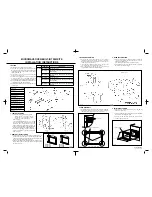
Considering boot order changes
Before changing the boot order, note the following considerations:
●
When the computer restarts after the boot order has been changed, the computer attempts to
start using the new boot order.
●
If there is more than one type of boot device, the computer attempts to boot using the first device
of each type of boot device (except for optical devices). For example, if the computer is
connected to a USB hard drive, and if the system attempts to boot from this USB hard drive and
fails, it will not attempt to boot to the hard drive in the hard drive bay. Instead, it will try to boot to
the next type of device in the boot order. However, if there are two optical devices, and the first
optical device does not boot (either because it does not contain media or the media is not a boot
disc), the system will try to boot to the second optical device.
●
Changing the boot order also changes the logical drive designations. For example, if you start up
from a CD-ROM drive with a disc formatted as drive C, that CD-ROM drive becomes drive C and
the hard drive in the hard drive bay becomes drive D.
●
The computer will boot from a NIC device only if the device has been enabled in the Built-In
Device Options menu of Setup Utility and if booting from the device has been enabled in the
Boot Options menu of Setup Utility. Booting from a NIC does not affect logical drive designations
because no drive letter is associated with the NIC.
72
Chapter 13 MultiBoot
Summary of Contents for Pavilion g4-1300
Page 1: ...HP Notebook User Guide ...
Page 4: ...iv Safety warning notice ...
Page 10: ...x ...
Page 19: ...Front Component Description Speakers 2 Produce sound Front 9 ...
Page 99: ......
















































